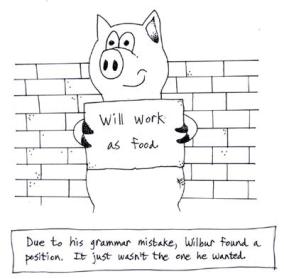Pop! That surprised you didn’t it? Like an early hatching Easter chick, here is this week’s Whiteboard post, poking its fluffy white head out of the internet eggshell to wish you an early Happy Easter.
Well what with it being Good Friday tomorrow, and The Whiteboard traditionally getting its weekly stroll around the exercise yard on that very day, I thought I’d better give you all something to read a day early this week rather than posting something as well read as a Hays Social Media policy. Speaking of which, my rubbish usually gets collected on a Friday morning around the time I post The Whiteboard, so can anyone tell me if I’m supposed to chuck that up the end of my driveway a day early too?
Truth be told, I have little to report this week. It’s a short week. It’s been a frantically busy start to the new financial year here in New Zealand and all seems to be picking up very nicely indeed out there in the wider Asia-Pac region of recruitment. The Auckland office of Absolute IT have invited me to a local bar to watch Spurs (pronounced bleurgh) v. Arsenal but I have unfortunately booked myself out all morning in a meeting of which you will hear more about further into the future. Plus almost the entire office supports Spurs, having very recently farewelled their lone Arsenal supporter, and the way Arsenal are playing I’m not sure it sounds like an enjoyable prospect. If you guys are reading this from smartphones at half time then cheers to you and go the Gunners. [Update: Arsenal are 3-2 up at half-time, sorry I’m not there now!]
Honestly, if you’re an IT recruiter looking for a new home, and sad enough to support Spurs, then speak to those guys. You probably wouldn’t even need an interview 😉
But wait! I do have a small piece of news to impart. This is the 51st posting on The Whiteboard, where I have published a fresh blog post every Friday since it all kicked off on 22nd April 2010 with the following thoughts:
“…if you are an agency or internal recruiter, particularly in New Zealand, or perhaps a recruitment Director or company owner, you might like to check in with The Whiteboard every now and then. We should be posting something up every Friday and hoping to lighten the mood towards the weekend, as well as keep you informed of news, articles, opinion and gossip from the world of recruitment, with a definite leaning towards the Asia-Pac region that is our hunting ground.”
Yes next week will be The Whiteboard’s first birthday and I hope that some of my plans and aspirations for this blog have come true over the past 12 months. It has been a pleasure to write and comment upon various goings on in our world of recruitment but most edifying of all has been your growing support, from reading numbers, subscriptions, comments and general word of mouth comments made to me. Thanks for your support and keep those comments coming. I look forward to ever more vigorous debates over the coming 12 months.
For a birthday present I am taking The Whiteboard on a designer shopping spree. Watch out for the new-look Whiteboard next week and if its bum looks big – don’t be afraid to say so.
All that is left to say is Happy Easter to everyone out there in recruitment and I hope you all enjoy a well-earned break. But mainly to the New Zealand recruiters, not because I live and work here, but because you jammy Aussies have such a prosperous economy your Government can afford to give you Tuesday off for ANZAC Day as well.
At least that’s an extra day’s revenue on temp margins for the New Zealand recruitment firms. Clutching at straws? You’ve got to look on the bright side!







